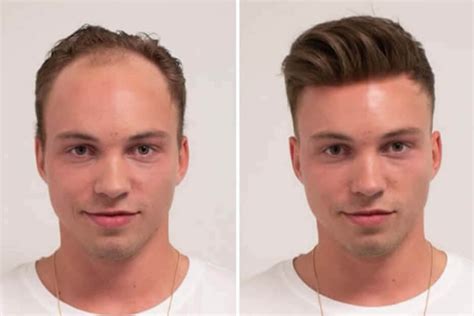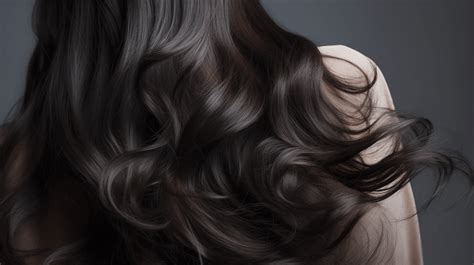Hair Virgin Hair: An Overview
Virgin hair refers to hair that has not been chemically processed or treated in any way. It is naturally healthy, strong, and shiny, and is highly coveted in the hair industry.

Types of Virgin Hair
There are two main types of virgin hair:
- Remy hair: Remy hair is hair that has been collected with the cuticles all facing the same direction. This makes the hair less likely to tangle or mat, and gives it a more natural look and feel.
- Non-Remy hair: Non-Remy hair is hair that has been collected without regard to the direction of the cuticles. This type of hair is more likely to tangle or mat, and may not have as natural a look and feel as Remy hair.
Benefits of Virgin Hair
Virgin hair offers a number of benefits, including:
- It is healthy and strong. Virgin hair has not been damaged by chemical processing, so it is naturally healthy and strong. This makes it less likely to break or split, and gives it a longer lifespan.
- It is shiny and lustrous. Virgin hair is naturally shiny and lustrous, giving it a beautiful, healthy appearance.
- It is versatile. Virgin hair can be styled in a variety of ways, from straight to curly to wavy. This makes it a great choice for people who want to change their hairstyle often.
How to Care for Virgin Hair
Virgin hair requires special care to maintain its health and beauty. Here are a few tips:
- Wash your hair regularly. Virgin hair should be washed regularly, but not too often. Washing your hair too often can strip it of its natural oils and make it dry and brittle.
- Use a gentle shampoo. When washing your hair, use a gentle shampoo that is designed for virgin hair. Harsh shampoos can damage the hair and make it more prone to breakage.
- Condition your hair regularly. Conditioning your hair is essential for keeping it healthy and moisturized. Use a conditioner that is designed for virgin hair, and apply it to the ends of your hair after every wash.
- Avoid heat styling. Heat styling can damage virgin hair, so it is best to avoid it as much as possible. If you do need to use heat styling tools, be sure to use a heat protectant spray to protect your hair from damage.
- Protect your hair from the sun. The sun’s UV rays can damage virgin hair, so it is important to protect it from the sun. Wear a hat or scarf when you are outdoors, and avoid spending too much time in the sun.
FAQs About Virgin Hair
Here are some frequently asked questions about virgin hair:
- What is the difference between virgin hair and processed hair? Virgin hair has not been chemically processed or treated in any way, while processed hair has been. This makes virgin hair healthier, stronger, and more shiny than processed hair.
- How long does virgin hair last? Virgin hair can last for several years with proper care. The lifespan of your virgin hair will depend on how often you wash it, style it, and protect it from the sun.
- Can I dye virgin hair? Yes, you can dye virgin hair. However, it is important to use a gentle hair dye that is designed for virgin hair. Harsh hair dyes can damage the hair and make it more prone to breakage.
- Can I bleach virgin hair? Yes, you can bleach virgin hair. However, it is important to use a professional hair stylist to bleach your hair, as bleaching can damage the hair if done incorrectly.
- How much does virgin hair cost? The cost of virgin hair varies depending on the type of hair, the length of the hair, and the quality of the hair. In general, virgin hair is more expensive than processed hair.
